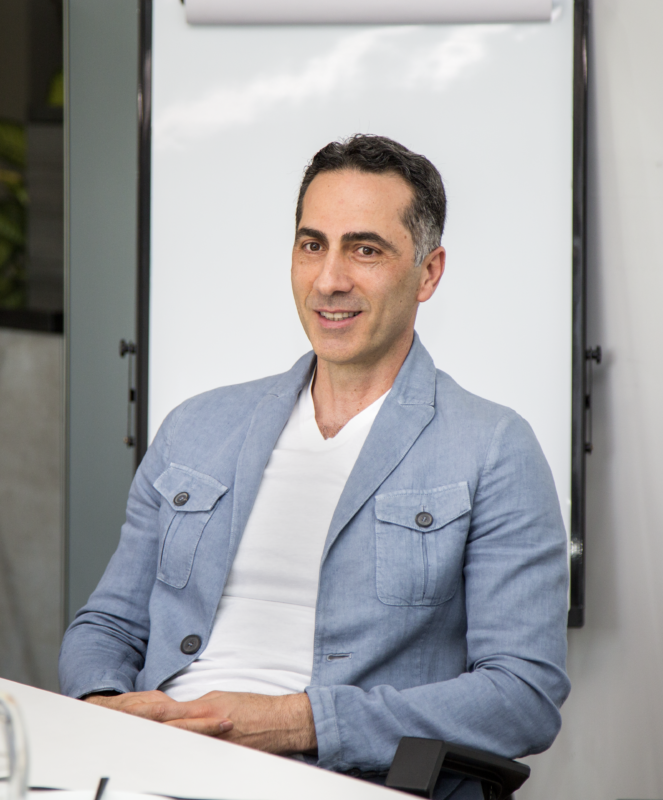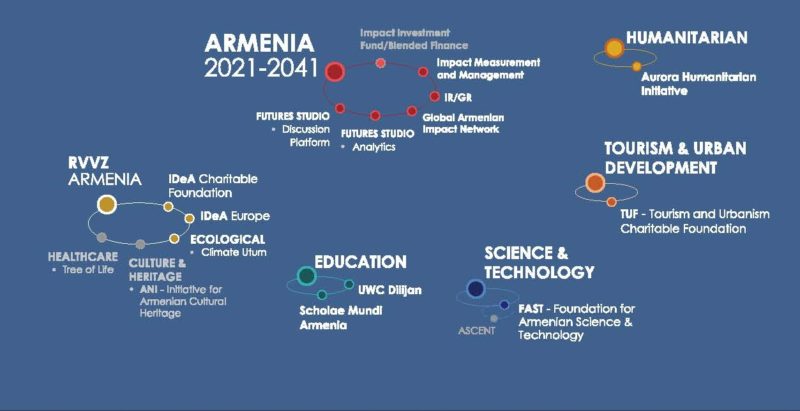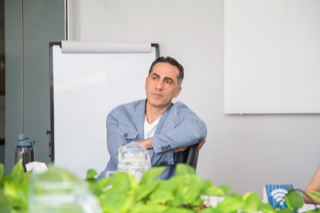WATERTOWN — Scientific and technological prowess do not emerge from nowhere. A small, landlocked country without many natural resources, Armenia benefited from the broader Soviet system prior to its independence but now must work hard to create a new system to support cutting edge work that can provide the country with practical economic benefits. There are various government and university programs as well as a number of centers and nonprofit organizations working in this vein. One of the latter, the Foundation for Armenian Technology and Science (FAST), focuses on the route from education and research to commercialization of products, attempting to foster the development of an ecosystem that would drive scientific advancement and technological innovation in Armenia. FAST is celebrating its fifth anniversary this year, and its chief executive officer, Dr. Armen Orujyan, provides some insights into its achievements, challenges and projects.
Orujyan was born in Armenia but immigrated to California with his family in 1989 as a teenager. After graduating the University of California, Los Angeles, he obtained a master’s and then a doctoral degree (2007) from Claremont Graduate University’s School of Politics and Economics. In 1999, he founded and served as chairman of Athgo, an entrepreneurship platform and nonprofit organization enjoying consultative status with the United Nations Economic and Social Council, the UN Department of Public Information and the World Intellectual Property Organization.

In 2016, Orujyan met Russian-Armenian entrepreneur Ruben Karlenovich Vardanyan and was invited to visit Armenia and explore working with him and his partners. Orujyan’s first visit in February 2017 went so well that he started to go back and forth over the next six months to see if a working relationship could be established. Orujyan said he was extremely impressed by Armenia as well as the projects that Vardanyan and Boston-based entrepreneur Dr. Noubar Afeyan had achieved and exclaimed: “It was very exciting. It was a different Armenia. There was a spark in young people, in their eyes, and in their thinking. They were more hopeful than a decade ago, when I last had visited Armenia.”
FAST was formally established in late June of that year and Armenia became Orujyan’s permanent home. He began working as FAST’s CEO from November 1. Vardanyan had brought Afeyan onboard as cofounder, along with Fr. Mesrop Aramyan, who at the time represented both the Ayb School and the Luys Foundation, and entrepreneur and engineer/physicist Artur Alaverdyan, who served as chair of the FAST board of trustees for three years. Orujyan said that, while this happened before his own involvement, he had learned that Vardanyan spoke to the government of then President Serzh Sargsyan and made all the initial arrangements to put together a team.
FAST took its place among the numerous other philanthropic, educational and entrepreneurial projects that Vardanyan and Afeyan had initiated in Armenia, including the IdeA Foundation (Initiatives for the Development of Armenia), Aurora Humanitarian Initiative, United World Colleges Dilijan College, and Revival of Tatev Project. As such, Orujyan said that many of the leaders of these and other related institutions, primarily in Armenia, would have weekly calls to discuss what they were focusing on, their accomplishments and sometimes their challenges. This facilitated cooperation when suitable, while at times ad hoc opportunities for collaboration also arose.

The work conducted by FAST is also reflected in the planning for the future of Armenia through the Future Armenian public initiative and other related strategic studies and approaches of the Armenia 2041 Charity Foundation funded by Afeyan, Vardanyan, Alaverdyan and several sponsors.








